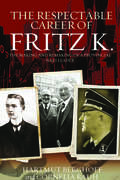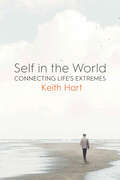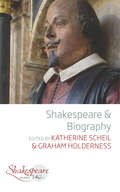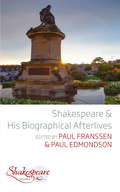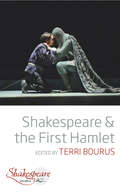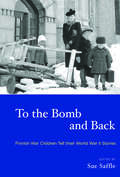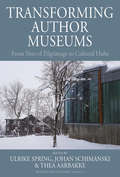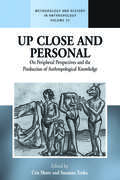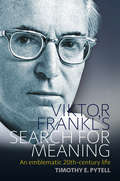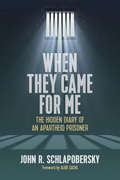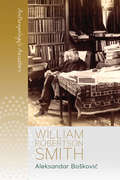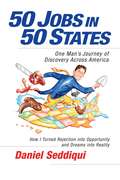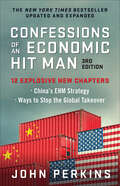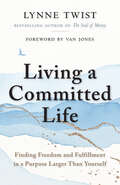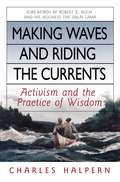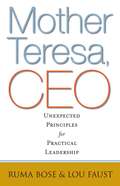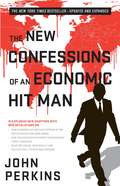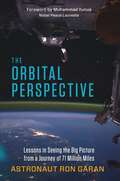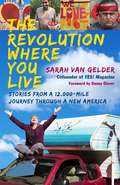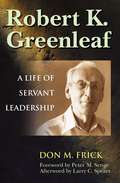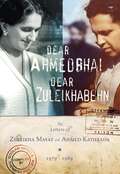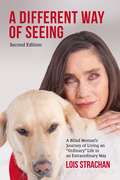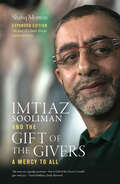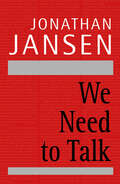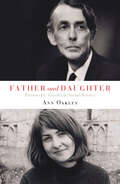- Table View
- List View
The Respectable Career of Fritz K.: The Making and Remaking of a Provincial Nazi Leader (Studies in German History #18)
by Hartmut Berghoff Cornelia RauhEntrepreneur and Nazi functionary Fritz Kiehn lived through almost 100 years of German history, from the Bismarck era to the late Bonn Republic. A successful manufacturer, Kiehn joined the Nazi Party in 1930 and obtained a number of influential posts after 1933, making him one of the most powerful Nazi functionaries in southern Germany. These posts allowed him ample opportunity to profit from “Aryanizations” and state contracts. After 1945, he restored his reputation, was close to Adenauer's CDU during Germany's economic miracle, and was a respected and honored citizen in Trossingen. Kiehn's biography provides a key to understanding the political upheavals of the twentieth century, especially the workings of the corrupt Nazi system as well as the “coming to terms” with National Socialism in the Federal Republic.
Self in the World: Connecting Life's Extremes
by Keith HartEminent anthropologist Keith Hart draws on the humanities, popular culture and his own experiences to help readers explore their own place in history. We each embark on two life journeys – one out into the world, the other inward to the self. With these journeys in mind, anthropologist, amateur economist and globetrotter Keith Hart reflects on a life of learning, sharing and remembering to offer readers the means of connecting life’s extremes – individual and society, local and global, personal and impersonal dimensions of existence and explores what it is that makes us fully human. “This is a work of great originality. Keith Hart has had an unorthodox academic career and it has liberated him in many ways from academic pieties. His background in African ethnography gives him a fascinating angle on all sorts of things, not least the possibility of a more African-influenced global future. The book is full of surprises and mind-shifting observations. I actually couldn't put it down.”—Sherry B. Ortner, UCLA From the introduction: People have many sides, but I will focus here on two. Each of us is a biological organism with a historical personality that together make us a unique individual. But we cannot live outside society which shapes us in unfathomable ways. Human beings must learn to be self-reliant (not self-interested) in small and large ways: no-one will brush your teeth for you or save you from being run over while crossing the street. We each must also learn to belong to others, merging personal identity in a plethora of social relations and categories. Modern ideology insists that being individual and mutual is problematic. The culture of capitalist societies anticipates a conflict between them. Yet they are inseparable aspects of human nature.
Shakespeare and Biography (Shakespeare & #8)
by Katherine Scheil Graham HoldernessFrom Shakespeare’s religion to his wife to his competitors in the world of early modern theatre, biographers have approached the question of the Bard’s life from numerous angles. Shakespeare & Biography offers a fresh look at the biographical questions connected with the famous playwright’s life, through essays and reflections written by prominent international scholars and biographers.
Shakespeare and His Biographical Afterlives (Shakespeare & #6)
by Paul Franssen & Paul EdmondsonNew Shakespeare biographies are published every year, though very little new documentary evidence has come to light. Inevitably speculative, these biographies straddle the line between fact and fiction. Shakespeare and His Biographical Afterlives explores the relationship between fiction and non-fiction within Shakespeare’s biography, across a range of subjects including feminism, class politics, wartime propaganda, children’s fiction, and religion, expanding beyond the Anglophone world to include countries such as Germany and Spain, from the seventeenth century to present day.
Shakespeare and the First Hamlet (Shakespeare & #9)
by Terri BourusThe first edition of Hamlet – often called ‘Q1’, shorthand for ‘first quarto’ – was published in 1603, in what we might regard as the early modern equivalent of a cheap paperback. Yet this early version of Shakespeare’s classic tragedy is becoming increasingly canonical, not because there is universal agreement about what it is or what it means, but because more and more Shakespearians agree that it is worth arguing about. The essays in this collected volume explore the ways in which we might approach Q1’s Hamlet, from performance to book history, from Shakespeare’s relationships with his contemporaries to the shape of his whole career.
To the Bomb and Back: Finnish War Children Tell Their World War II Stories
by Sue SaffleBetween 1939 and 1945, some 80,000 Finnish children were sent to Sweden, Denmark, and elsewhere, ostensibly to protect them from danger while their nation’s soldiers fought superior Soviet and German forces. This was the largest of all of World War II children’s transports, and although acknowledged today as “a great social-historical mistake,” it has received surprisingly little attention. This is the first English-language account of Finland’s war children and their experiences, told through the survivors’ own words. Supported by an extensive introduction, a bibliography of secondary sources, and over two dozen photographs, this book testifies to the often-lifelong traumas endured by youthful survivors of war.
Transforming Author Museums: From Sites of Pilgrimage to Cultural Hubs (Museums and Collections #13)
by Ulrike Spring, Johan Schimanski Thea AarbakkeLiterary museums today must respond to new challenges; the traditional image of the author’s home museum as a sacred place of literary pilgrimage centered around a national hero has been questioned, and literary museums have begun to develop new strategies centered not only on biography, but also literary texts, imagined spaces, different readers, historical contexts, architectural concepts, and artistic interventions. As this volume shows, the changing of spaces asks how literary museums create new ways of interlinking real and literary spaces, texts, objects, readers, and tourists.
Up Close and Personal
by Cris Shore Susanna TrnkaCombining rich personal accounts from twelve veteran anthropologists with reflexive analyses of the state of anthropology today, this book is a treatise on theory and method offering fresh insights into the production of anthropological knowledge, from the creation of key concepts to major paradigm shifts. Particular focus is given to how 'peripheral perspectives' can help re-shape the discipline and the ways that anthropologists think about contemporary culture and society. From urban Maori communities in Aotearoa/New Zealand to the Highlands of Papua New Guinea, from Arnhem Land in Australia to the villages of Yorkshire, these accounts take us to the heart of the anthropological endeavour, decentring mainstream perspectives, and revealing the intimate relationships and processes that create anthropological knowledge.
Viktor Frankl's Search for Meaning
by Timothy PytellFirst published in 1946, Viktor Frankl's memoir Man's Search for Meaning remains one of the most influential books of the last century, selling over ten million copies worldwide and having been embraced by successive generations of readers captivated by its author's philosophical journey in the wake of the Holocaust. This long-overdue reappraisal examines Frankl's life and intellectual evolution anew, from his early immersion in Freudian and Adlerian theory to his development of the "third Viennese school" amid the National Socialist domination of professional psychotherapy. It teases out the fascinating contradictions and ambiguities surrounding his years in Nazi Europe, including the experimental medical procedures he oversaw in occupied Austria and a stopover at the Auschwitz concentration camp far briefer than has commonly been assumed. Throughout, author Timothy Pytell gives a penetrating but fair-minded account of a man whose paradoxical embodiment of asceticism, celebrity, tradition, and self-reinvention drew together the complex strands of twentieth-century intellectual life.
When They Came for Me: The Hidden Diary of an Apartheid Prisoner
by John R. SchlapoberskyIn 1969, while a student in South Africa, John Schlapobersky was arrested for opposing apartheid and tortured, detained and eventually deported. Interrogated through sleep deprivation, he later wrote secretly in solitary confinement about the struggle for survival. In this exquisitely written memoir, the author reflects on the singing of the condemned prisoners, the poetry, songs and texts that saw him through his ordeal, and its impact. This sense of hope through which he transformed his life guides his continuing work as a psychotherapist and his focus on the rehabilitation of others. Apartheid and its resistance come to life in this story to make it a vital historical document, one of its time and one for our own.
William Robertson Smith (Anthropology's Ancestors #2)
by Aleksandar BoškovićWilliam Robertson Smith’s influence on anthropology ranged from his relationship with John Ferguson McLennan, to advising James George Frazer to write about “Totem” and “Taboo” for the Encyclopaedia Britannica that he edited. This biography places a special emphasis on the notes and observations from his travels to Arabia, as well as on his influence on the representatives of the “Myth and Ritual School.” With his discussion of myth and ritual, Smith influenced generations of scholars, and his insistence on the connection between the people, their God, and the land they inhabited inspired many of the concepts later developed by Émile Durkheim.
50 Jobs in 50 States
by Daniel SeddiquiLike lots of college grads, Daniel Seddiqui was having a hard time finding a job. But despite more than forty rejections, he knew opportunities had to exist. So he set out on an extraordinary quest: fifty jobs in fifty states in fifty weeks. And not just any jobs--he chose professions that reflected the culture and economy of each state. Working as everything from a cheesemaker in Wisconsin, a border patrol agent in Arizona, and a meatpacker in Kansas to a lobsterman in Maine, a surfing instructor in Hawaii, and a football coach in Alabama, Daniel chronicles how he adapted to the wildly differing people, cultures, and environments. From one week to the next he had no idea exactly what his duties would be, where he'd be sleeping, what he'd be eating, or how he'd be received. He became a roving news item, appearing on CNN, Fox News, World News Tonight, MSNBC, and the Today show--which was good preparation for his stint as a television weatherman. Tackling challenge after challenge--overcoming anxiety about working four miles underground in a West Virginia coal mine, learning to walk on six-foot stilts (in a full Egyptian king costume) at a Florida amusement park, racing the clock as a pit-crew member at an Indiana racetrack--Daniel completed his journey a changed man. In this book he shares stories about the people he met, reveals the lessons he learned, and explains the five principles that kept him going.
Confessions of an Economic Hit Man, 3rd Edition
by John PerkinsThe riveting third edition of this New York Times bestselling title expands its focus to China, exposes corruption on an international scale, and offers much-needed solutions. Extensively updated, this edition features twelve new chapters, including a new introduction and conclusion. The book brings the story of economic hit men (EHMs) up-to-date and focuses on China's EHM strategy.EHMs are highly paid professionals who use development loans to cheat countries around the globe out of trillions of dollars and force them to serve US interests. Former economic hit man John Perkins gives an insider view into this system. With a truly global perspective, this book offers powerful revelations on extremely timely elements, including the third economic hit man wave that is sweeping the world and the way China optimizes US EHM models to make them a more dominating force. China's strategy is even more dangerous since it's successful at enticing lower income nations. Perkins also reveals how we can transform what he calls a failing Death Economy into a Life Economy. He encourages China's leaders to apply the Confucian ideal of serving the family to the global community to end the EHM strategy. The book ultimately provides a source of hope and inspires readers to participate in a new era of global cooperation. Perkins also reveals how we can transform what he calls a failing Death Economy into a Life Economy. He encourages China's leaders to apply the Confucian ideal of serving the family to the global community to end the EHM strategy. The book ultimately provides a source of hope and inspires readers to participate in a new era of global cooperation.
Living a Committed Life: Finding Freedom and Fulfillment in a Purpose Larger Than Yourself
by Lynne TwistWhat would your life be like if you committed to something larger than yourself? Find out in the newest book from global transformation thought leader Lynne Twist. How does one person make a difference in the world? People constantly seek to discover meaning in their lives, but as humans take on the challenges facing us in this decade and beyond, we're searching for it now more than ever. A Committed Life demonstrates the power of dedication that goes beyond the self and teaches how to live a committed life that enables you to draw on resources and capacities from your most authentic self. In five parts, Lynne Twist shows how to make and keep commitments, engage in individual and collective action, and discover ways to connect and collaborate to make a difference. By sharing stories and perspectives from her life, Twist reveals her unique experience as a thought leader and activist in multiple causes, from ending world hunger and protecting the Amazon rainforest to empowering women's leadership. The book presents the guiding principles that have enabled her own success and that turn inspiration into action for everyone.
Making Waves and Riding the Currents
by Charles HalpernThis book is about working for a more just, compassionate, and sustainable world while cultivating the wisdom that supports and deepens this work. Charles Halpern is a social entrepreneur with a remarkable record of institutional innovation. He founded the Center for Law and Social Policy, the nation's first public interest law firm, litigating landmark environmental protection and constitutional rights cases. As founding dean of the new City University of New York School of Law he initiated a bold program for training public interest lawyers as whole people. Later, as president of the $400 million Nathan Cummings Foundation, he launched an innovative grant program that drew together social justice advocacy with meditation and spiritual inquiry. In his years of activism, he had a growing intuition that something was missing, and he sought ways of developing inner resources that complemented his cognitive and adversarial skills. These explorations led him to the conviction that what he calls the practice of wisdom is essential to his effectiveness and well-being and to our collective capacity to address the challenges of the 21st century successfully. With wit and self-deprecating humor, Halpern shares candid and revealing lessons from every stage of his life, describing his journey and the teachers and colleagues he encountered on the way--a cast of characters that includes Barney Frank and Ralph Nader, Ram Dass and the Dalai Lama. Making Waves and Riding the Currents vividly demonstrates the life-enhancing benefits of integrating a commitment to social justice with the cultivation of wisdom. It is a real-world guide to effectively achieving social and institutional change while maintaining balance, compassion, and hope.
Mother Teresa, CEO
by Louis Faust III Ruma BoseWhen most people think of Mother Teresa, they think of a saint--a spiritual hero of extraordinary humanitarian accomplishments, a Nobel Peace Prize winner. But Mother Teresa was also the leader of one of the world's largest and most successful organizations: the Missionaries of Charity. Since founding it in 1948 she has raised millions of dollars and, with over a million volunteers in more than 100 countries, it remains one of the most recognized brands in the world. How did one nun who never received any formal education in business build such an impressive global organization? Frank, realistic, and firmly grounded in practicality, Mother Teresa's leadership style helped to inspire and organize people across the world. This book shares ten essential leadership principles drawn from Mother Teresa's example and applies them to today's business world. Authors Ruma Bose, an entrepreneur who volun- teered with Mother Teresa, and Lou Faust, a leading business expert, are the first to examine her in this light--as a leader whose management style and dedication to a singular vision led to one of the world's most unlikely success stories. Mother Teresa may have been a saint, but her spectacular success was not a product of divine providence. Her genius was the simplicity of her vision and her dedication to its implementation. It was in the way she treated her people, refusing to distance herself from the everyday work of a typical sister of the Missionaries of Charity. It was in how she handled tough choices--like accepting donations from brutal Haitian dictator François "Papa Doc" Duvalier. These were the principles that made her the great leader of a global organization, and they can be applied by anyone in any organization--no sainthood required.
The New Confessions of an Economic Hit Man
by John PerkinsShocking Bestseller: The original version of this astonishing tell-all book spent 73 weeks on the New York Times bestseller list, has sold more than 1.25 million copies, and has been translated into 32 languages. New Revelations: Featuring 15 explosive new chapters, this expanded edition of Perkins's classic bestseller brings the story of economic hit men (EHMs) up to date and, chillingly, home to the US. Over 40 percent of the book is new, including chapters identifying today's EHMs and a detailed chronology extensively documenting EHM activity since the first edition was published in 2004.Former economic hit man John Perkins shares new details about the ways he and others cheated countries around the globe out of trillions of dollars. Then he reveals how the deadly EHM cancer he helped create has spread far more widely and deeply than ever in the US and everywhere else--to become the dominant system of business, government, and society today. Finally, he gives an insider view of what we each can do to change it.Economic hit men are the shock troops of what Perkins calls the corporatocracy, a vast network of corporations, banks, colluding governments, and the rich and powerful people tied to them. If the EHMs can't maintain the corrupt status quo through nonviolent coercion, the jackal assassins swoop in. The heart of this book is a completely new section, over 100 pages long, that exposes the fact that all the EHM and jackal tools--false economics, false promises, threats, bribes, extortion, debt, deception, coups, assassinations, unbridled military power--are used around the world today exponentially more than during the era Perkins exposed over a decade ago.The material in this new section ranges from the Seychelles, Honduras, Ecuador, and Libya to Turkey, Western Europe, Vietnam, China, and, in perhaps the most unexpected and sinister development, the United States, where the new EHMs--bankers, lobbyists, corporate executives, and others--"con governments and the public into submitting to policies that make the rich richer and the poor poorer."But as dark as the story gets, this reformed EHM also provides hope. Perkins offers a detailed list of specific actions each of us can take to transform what he calls a failing Death Economy into a Life Economy that provides sustainable abundance for all.
The Orbital Perspective
by Muhammad Yunus Astronaut Ron GaranFor astronaut Ron Garan, living on the International Space Station was a powerful, transformative experience--one that he believes holds the key to solving our problems here on Earth. On space walks and through windows, Garan was struck by the stunning beauty of the Earth from space but sobered by knowing how much needed to be done to help this troubled planet. And yet on the International Space Station, Garan, a former fighter pilot, was working work side by side with Russians, who only a few years before were "the enemy." If fifteen nationalities could collaborate on one of the most ambitious, technologically complicated undertakings in history, surely we can apply that kind of cooperation and innovation toward creating a better world. That spirit is what Garan calls the "orbital perspective."Garan vividly conveys what it was like learning to work with a diverse group of people in an environment only a handful of human beings have ever known. But more importantly, he describes how he and others are working to apply the orbital perspective here at home, embracing new partnerships and processes to promote peace and combat hunger, thirst, poverty, and environmental destruction. This book is a call to action for each of us to care for the most important space station of all: planet Earth. You don't need to be an astronaut to have the orbital perspective. Garan's message of elevated empathy is an inspiration to all who seek a better world.
The Revolution Where You Live: Stories from a 12,000-Mile Journey Through a New America
by Danny Glover Sarah Van GelderDiscover the Real Revolution Unfolding across AmericaAmerica faces huge challenges--climate change, social injustice, racist violence, economic insecurity. Journalist Sarah van Gelder suspected that there were solutions, and she went looking for them, not in the centers of power, where people are richly rewarded for their allegiance to the status quo, but off the beaten track, in rural communities, small towns, and neglected urban neighborhoods. She bought a used pickup truck and camper and set off on a 12,000-mile journey through eighteen states, dozens of cities and towns, and five Indian reservations. From the ranches of Montana to the coalfields of Kentucky to the urban cores of Chicago and Detroit, van Gelder discovered people and communities who are remaking America from the ground up. Join her as she meets the quirky and the committed, the local heroes and the healers who, under the mass media's radar, are getting stuff done. The common thread running through their work was best summed up by a phrase she saw on a mural in Newark: "We the People LOVE This Place." That connection we each have to our physical and ecological place, and to our human community, is where we find our power and our best hopes for a new America.
Robert K. Greenleaf: A Life of Servant Leadership
by Don M. FrickAfter serving as a top-level AT&T executive for years, Greenleaf pioneered the concept of "servant leadership;" described by the center he founded as "a practical philosophy which supports people who choose to serve first, and then lead as a way of expanding service to individuals and institutions," which "encourages collaboration, trust, foresight, listening, and the ethical use of power and empowerment. " This biography, penned by Greenleaf's collaborator on the book On Becoming a Servant Leader, describes his career and the development of his ideas. Annotation ©2004 Book News, Inc. , Portland, OR (booknews. com)
Dear Ahmedbhai,Dear Zuleikhabehn: The Letters Of Zuleikha Mayat And Ahmed Kathrada, 1979-1989
by Goolam Vahed Thembisa Waetjen‘The very sense of loss keeps alive an expectation. How easy it is to lose sight of what is historically invisible – as if people lived only history and nothing else!’
A Different Way of Seeing: A Blind Woman's Journey Of Living An Ordinary Life In An Extraordinary Way
by Lois StrachanEndorsed by the South African National Council for the Blind, and the South African Guide-Dogs Association for the Blind. Have you ever wondered how a blind person pours a cup of coffee? Or how they and their guide dog know when it’s safe to cross a busy road? When Lois Strachan lost her sight at the age of 21 years, she had to learn the answers to these and countless other questions of how to live as a blind person in a sighted world. In this delightfully quirky and entertaining book, Lois shares some of the secrets she discovered about how to live an "ordinary" life in an extraordinary way despite her blindness.
Imtiaz Sooliman and the Gift of the Givers: A Mercy For All
by Shafiq MortonIMTIAZ SOOLIMAN, a medical doctor practising in Pietermaritzburg, South Africa, visited a Shaikh in Istanbul in 1992. The Sufi teacher gave him a message that would dramatically change the lives of countless people. ‘To my absolute astonishment he told me I would help people for the rest of my life. He then instructed me to form a humanitarian organisation called the “Gift of the Givers”, and repeated the phrase “the best among people are those who benefit mankind”.’ Almost 30 years later Gift of the Givers, Africa’s largest humanitarian and disaster agency, has a reputation for speedy responses to floods, war, famine, fires, tsunamis, kidnapping and earthquakes. Well known for their interventions in South African and international disasters, teams of volunteers have undertaken missions to places such as Bosnia, Palestine, Japan, Haiti, Indonesia, Malawi and Mozambique. They have put up hospitals, run clinics, dug wells, drilled boreholes, built houses, offered scholarships and provided shelter, food and psychological succour to millions. Originally published in 2014, the book has been brought up to date to continue the extraordinary tale of an organisation that has become a South African legend – the first to intervene in so many devastating situations and bring hope to those who have lost everything. Gift of the Givers’ reputation for direct, honest and non-partisan solution-finding has become a beacon of hope in South Africa.
Father and Daughter: Patriarchy, Gender and Social Science
by Ann OakleyFather and daughter provides an unique ‘insider perspective’ on two key figures in twentieth-century British social science. Ann Oakley, a highly respected sociologist and best-selling writer, draws on her own life and that of her father, Richard Titmuss, a well-known policy analyst and defender of the welfare state, to offer an absorbing view of the connections between private lives and public work. Using an innovative mix of biography, autobiography, intellectual history, archives, and personal interviews, some of which have not been previously available to the public, she provides a compelling narrative about gender, patriarchy, methodology, and the politics of memory and identity. This fascinating analysis defies the usual social science publications to offer a truly distinctive account which will be of wide interest.
